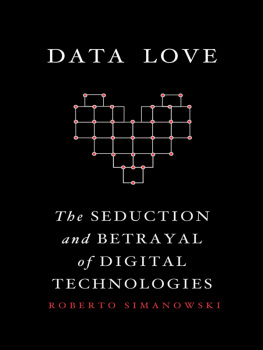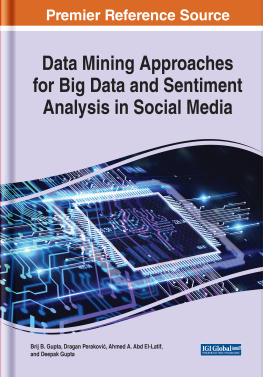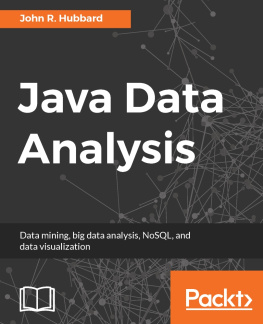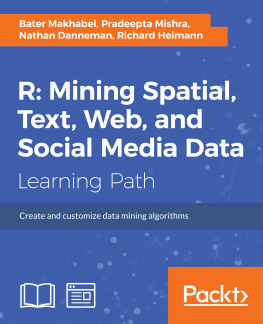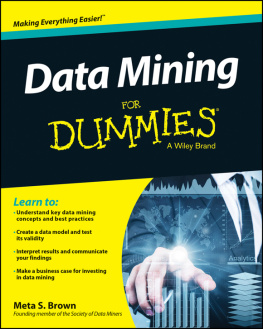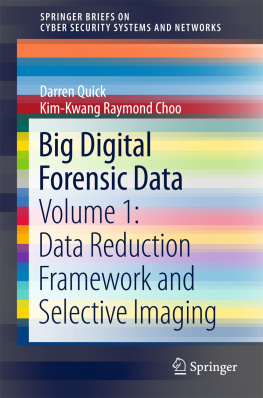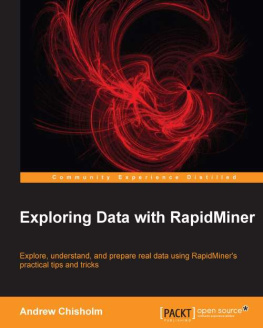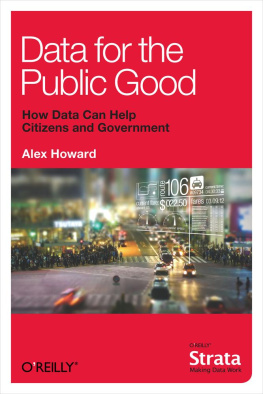Table of Contents
DATA LOVE
DATA LOVE
THE SEDUCTION AND BETRAYAL OF DIGITAL TECHNOLOGIES
ROBERTO SIMANOWSKI
Columbia University Press New York
Columbia University Press
Publishers Since 1893
New York Chichester, West Sussex
cup.columbia.edu
Copyright Matthes & Seitz Berlin Verlagsgesellschaft mbH 2014.
All rights reserved by and controlled through Matthes & Seitz Berlin Verlag
E-ISBN 978-0-231-54242-5
English translation 2016 Columbia University Press
Translated from the German by Brigitte Pichon and Dorian Rudnytsky, with the assistance of John Cayley, Luciana Gattass, and the author.
Library of Congress Cataloging-in-Publication Data
Names: Simanowski, Roberto, author.
Title: Data love : the seduction and betrayal of digital technologies / Roberto Simanowski.
Other titles: Data love. English
Description: New York : Columbia University Press, [2016] | Translation from German. | Includes bibliographical references and index.
Identifiers: LCCN 2016002787 (print) | LCCN 2016013214 (ebook) | ISBN 9780231177269 (cloth : alk. paper) | ISBN 9780231542425 (e-book) | ISBN 9780231542425 ()
Subjects: LCSH: InternetSocial aspects. | InternetMoral and ethical aspects. | Digital communicationsSocial aspects. | Privacy, Right of.
Classification: LCC HM851 .S554713 2016 (print) | LCC HM851 (e-book) | DDC 302.23/1dc23
LC record available at http://lccn.loc.gov/2016002787
A Columbia University Press E-book.
CUP would be pleased to hear about your reading experience with this e-book at .
COVER DESIGN: Philip Pascuzzo
References to websites (URLs) were accurate at the time of writing. Neither the author nor Columbia University Press is responsible for URLs that may have expired since the manuscript was prepared
For Luciana
Whom I love more than any data
Lots of knowledge fits into a hollow head.
Karl Kraus, Dicta and Contradicta (1909)
And youth is cruel, and has no remorse
And smiles at situations which it cannot see.
T. S. Eliot, Portrait of a Lady (1920)
He was found by the Bureau of Statistics to be
One against whom there was no official complaint,
And all the reports on his conduct agree
That, in the modern sense of an old-fashioned word, he was a saint.
W. H. Auden, The Unknown Citizen (1939)
CONTENTS
P RAISED be the technology that allows us to listen to Berlins Info Radio in the Swiss Alps or in a Hong Kong subway! Praised be the city map that describes itself when clicked on andwithout our having to study itleads us to the place we seek! Praise also to Shazam and all the apps that identify an unknown song, directly linking us to both the lyrics and the video! Praise to the online travel plan, showing all our connections within seconds and selling us the ticket as well! And likewise praised be the asthma inhaler that uses GPS to warn other patient-users away from those areas that they should avoid!
We love information. We always have. We used to gather around early wanderers to hear tales of faraway places when it was rare to find books outside of monasteries. We invented the telegraph because we grew impatient waiting for travelers. We waited as eagerly for the morning paper as for the evening news on radio or on TV, as if they were only ever presenting good news. Now we get the latest news by the minute, and we even treat our own lives as news, updating ourselves around the clock via Facebook, Twitter, or Instagram. Our eagerness to share information matches our greed for taking it in.
We view every mountain and every lake that has not yet been surveyed as an insult to human reason. When we communicate, watch videos, jog, eat, or sleep, a limitless fervor drives us to access the networks of ourselves and our social life. We are on a mission to produce data ceaselessly and in perpetuity. Every tweet is regarded as a contribution to knowledge. We believe in progress through analysis, which will make our lives easier and more secure.
We love ourselves in the form of the blue arrow on Googles map, and we eagerly anticipate the advent of the smart city where all citizens movements are tracked, creating instant taxi stands wherever they happen to be needed. Were looking forward to the wearable computers that will permit us to remain online without taking our hands off the steering wheel. We thank Google for reminding us where we are, what we should know, and what we will want to do next.
An information society is one in which all information is just seconds away, information about everything, everywhere, and at all times: information at your fingertips. We live in an information society. And we love it!
In 2011 the title of a Berlin conference called Data Love was justified in the following way:
Today, data is what electricity has been for the industrial age. Business developers, marketing experts and agency managers are faced with the challenge to create new applications out of the ever-growing data stream with added value for the consumer. In our data-driven economy, the consumer is in the focus point of consideration. Because his behaviour determines who wins, what lasts and what will be sold. Data is the crucial driver to develop relevant products and services for the consumer.
This emphatic promotion is affirmed by the classic business adage: What cant be measured cant be managed. Both statements show that data love is in no way unconditional. It is devoted to data as information that gives a meaningful form to measurable facts.
To be sure, data love is a euphemism. It is the palatable alternative to the central concept of digital-information society: big-data miningthe computerized analysis of large collections of data intended to reveal regularities and previously unknown correlations. Love refers to both aspects of the dual nature of the mining: Corporations love big data because it allows them to develop customized products, and consumers love big data for the same reason. This, at least, is what the quotation proposes to us: Mining data leads to added value for customers. Data love is a phenomenon not only of the society of control but also of the consumer society. And data love thrives on precisely the same data that security and privacy would claim to protect.
At the same time, data love is embraced by Internet activists who advocate free communication and proclaim as principles of datalove that data must flow, must be used, is neither good nor bad nor illegal, cannot be owned, is free. This notion opposes the misconceptions of politicians, who keep trying to establish exceptions for the expression of certain types of datasuch as hate speech or child pornand postulates an unconditional love of data regardless of that datas nature or possible misuse: Datalove is so exciting! Its all about the availability of data. What people do with it is not the question. The point is: people need data. Need to get it. Need to give it. Need to share it. Need to do things with it, by means of it. This is another and different form of data love, conceptualized as a desire to know or even as a second wave of Enlightenment: Datalove is about appreciation of being able to understand, perceive and process data altogether for the enjoyment and progress of all sentient beings. Business entrepreneurs and marketing experts can easily subscribe to this call for free data flow. What is missing in this enthusiastic embrace of data is a sensitivity to the potential for conflict between data mining and privacy. Claiming that if some data is meant to be private, it should not reach the Internet in the first place sounds an awful lot like the rhetorically effective nothing-to-hide argument one generally hears from intelligence agencies and big software companies.

